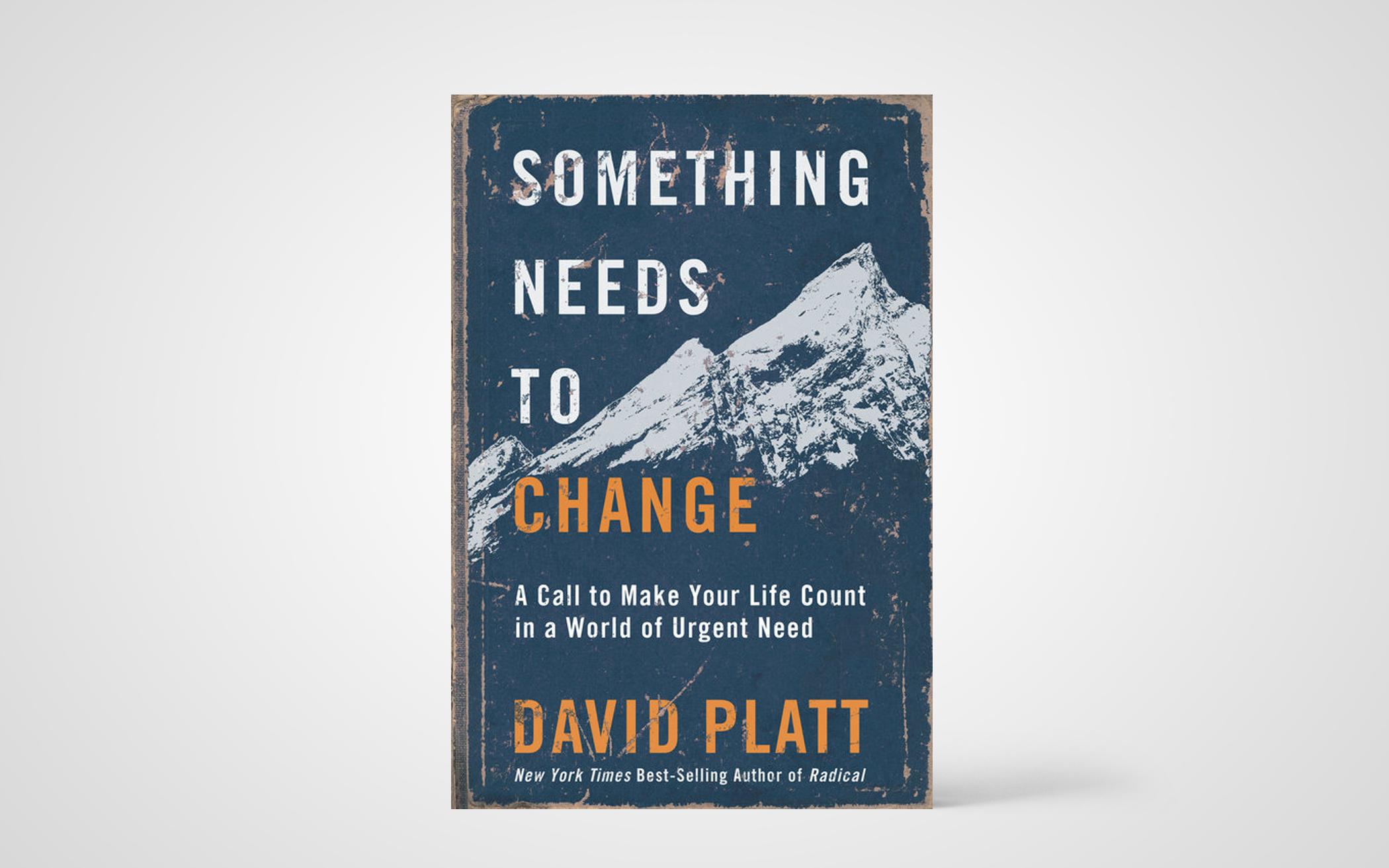I had never even heard of David Platt until President Donald Trump famously showed up unannounced at his McLean, Va., church in the summer of 2019. Impressed with how Platt handled the hugely publicized situation—with deep fairness, pastoral wisdom, and grace—I was interested in learning more about him. When I found a copy of his latest book—Something Needs to Change—in my teetering stack of review copies from publishers, I decided to plunge in.
I’m glad I did. What I found was a fellow believer who was willing to be vulnerable—a rare trait in these days of social media polish and Christian subculture veneer. That quality shines throughout the book, a singular combination of travelogue (Platt journeys to the Himalayas), hiking memoir, and spiritual challenge to make a difference in a world of terrible need.
While leading a team on a grueling weeklong hike of the Himalayas, Platt was shocked by the human needs he encountered. He meets a man who lost his eyesight from a simple infection, a handicapped man chained like an animal in a barn, and young girls who were trafficked for sex. One girl, in particular, stands out. Having been told that a short-term handout, such as the granola bar from his backpack, might cause more harm than good, Platt refuses (though with intense personal struggle) to give this girl a handout. She smiles and smiles and grabs onto him and his bag. When she finally realizes he will not give in, her eyes turn dark and cold and she spits on him. The encounter leaves Platt gutted, and the reader disturbed and haunted. Some parts of the narrative are hard to read; it’s definitely not a feel-good book.
Platt’s tone is genuine and relatable. “What happens when a preacher and author with three seminary degrees has his deepest convictions rocked by the darkness in the world around him and finds himself asking honestly, Is Jesus really the hope of the world?” As he wrestles with previous pat assumptions about faith, Platt invites the reader to question along with him.
"Where is God in the middle of suffering?" "What makes my religion any better than someone else's religion?" and "What do I believe about eternal suffering?"
One theme I found compelling was the age-old question: Are spiritual and physical needs equally urgent? We can all relate to Platt as he says, “In all my religious learning and responsibility, I find it dangerously easy to walk past urgent need and do nothing about it.”
He meets a young doctor who lives in and solves the tension between sharing the gospel and social ministry. She treats people’s broken and sick bodies day after day while knowing their spiritual need is greater. By not disconnecting the two emphases, she lays down her life so that these people in the treacherous and oppressive mountains will one day truly hear the gospel.
Platt wisely drives these big and complex ideas through stories and anecdotes. He shows more than he tells, prodding our privilege and challenging our comfort in North America.
This book exposed my complacency, stirred my compassion, and dared me to make a difference in my own world and beyond. I felt challenged, disturbed, and awoken to the life-changing possibilities beyond the status quo. (Waterbrook)
About the Author
Lorilee Craker, a native of Winnipeg, Man., lives in Grand Rapids, Mich. The author of 16 books, she is the Mixed Media editor of The Banner. Her latest book is called Eat Like a Heroine: Nourish and Flourish With Bookish Stars From Anne of Green Gables to Zora Neale Hurston.

